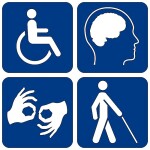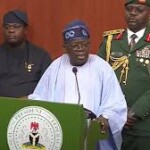As the world marks the 2025 International Day of Persons with Disabilities (IDPD) on December 3rd, it is pertinent that Nigeria confronts a hard truth: the news media — an institution constitutionally charged with informing, scrutinising, and empowering the public — continues to misrepresent and marginalise more than 30 million Nigerians with disabilities. This is not a minor journalistic flaw. It is a systemic failure that distorts public understanding, perpetuates discriminatory attitudes, and undermines sustainable development goals.
For decades, Nigerians with disabilities have appeared in news coverage mainly as symbols of pity, passive recipients of charity, or inspirational spectacles who “overcome” adversity for the cameras. Rarely are they represented as citizens with rights, workers with contributions, or individuals with agency whose lived experiences reveal structural failures in governance.
This persistent framing is neither accidental nor benign. It is the predictable outcome of a media system that routinely privileges sensationalism over context, charity over rights, and spectacle over substance. And at its core lies a breach of the media’s fundamental responsibility to reflect society in all its diversity.
A Crisis of Representation
Despite constituting almost 15% of Nigeria’s population, persons with disabilities (PWDs) are disturbingly absent from everyday news narratives. According to the National Commission for Persons with Disabilities (NCPWD), Nigeria is home to over 35 million PWDs, yet news stories that portray them as citizens deserving of equal rights and inclusion remain rare.
And when PWDs make it to the news pages or bulletins , it is often the norm that they are framed through the lenses of pity that portray them as helpless or tragic individuals dependent on society’s sympathy. When the narratives are not flavoured with pity-party, they reeks of charity which expects PWDs to be grateful for every donation or medical intervention. To further make the portrayal more condescending, Nigerian news media would rather adopt a Deficit narrative, one that defines PWDs by what they lack, rather than by what society denies them.
These tropes erase their humanity, their capabilities, and their structural challenges. They reinforce the notion that disability is a personal misfortune rather than a failure of public infrastructure, policy design, and institutional accountability.
Worse, this narrative vacuum makes it more difficult for policymakers to recognise urgent issues facing the disability community — from inaccessible hospitals and schools to discriminatory hiring practices and lack of social protection coverage.
The Missing Lens
Apparently, what Nigeria’s media ecosystem often fails to grasp is that disability is fundamentally a rights issue, not a charity problem. The adoption of the Discrimination Against Persons with Disabilities (Prohibition) Act, 2018 was meant to institutionalise this shift. The Act guarantees: access to public infrastructure; equal education; equal employment; accessible transportation; and a 5 percent employment quota in public institutions.
Yet compliance remains alarmingly poor. In 2024, disability organisations documented widespread disregard for accessibility requirements and found that many government institutions had not implemented the legally mandated employment quota. At the federal level, only a handful of ministries have begun adapting their physical structures or HR practices.
Instead of holding institutions and duty-bearers accountable, the media often ignores the policy environment altogether. Stories continue to revolve around handouts, NGO donations, or occasional “heroic” individuals. The deeper questions — Why are public buildings still inaccessible? Why are employers still discriminating? Why is enforcement of the 2018 Act so weak? — are rarely asked. This silence enables impunity.
Breaking the Social Contract
Critical media theories help explain why this breakdown matters — and what must change.
The Social Responsibility Theory asserts that media freedom comes with corresponding obligations to the public. It demands accuracy, balance, plurality, and fair representation of minority groups. In Nigeria, these obligations are consistently breached when it comes to disability.
By omitting substantive disability reporting, the media fails to: expose violations of disability rights; highlight policy gaps; amplify the voices of disabled citizens; and provide balanced coverage that reflects Nigeria’s full diversity. Simply put, the Nigerian press has abandoned its responsibility to one of the country’s largest marginalised communities.
Under the Development Media Theory — central to many Global South nations — the media must support national development by highlighting issues that hinder social progress, reduce inequality, and enhance civic participation.
Disability inclusion sits at the heart of this mandate, because exclusion is not just a human rights violation but a developmental crisis. Studies consistently show that excluding PWDs from labour markets reduces national productivity and deepens poverty cycles. In Nigeria, where youth unemployment is already high, the exclusion of millions of capable citizens is economically reckless.
Yet when the media frames disability solely as a medical or charity issue, it undermines the national development agenda. It sidelines conversations about: accessible infrastructure; inclusive education; workplace discrimination; social protection coverage; and political participation — all of which are essential to achieving Nigeria’s commitments under the Sustainable Development Goals (SDGs).
Yet, the theory that most urgently demands attention from Nigerian newsrooms is the Democratic Participant Theory. It argues that communication must be democratised — citizens should not only be represented in the media; they should shape it. This is where the Nigerian media’s failure is most glaring: the near-total absence of journalists with disabilities in newsrooms.
When non-disabled reporters speak about disabled people without ever speaking with them, representation becomes distorted. Stories lack nuance. Experiences are flattened. And harmful stereotypes persist.
The solution is simple, however. Bring persons with disabilities into the media workforce — as reporters, editors, producers, photographers, and decision-makers. Representation in the newsroom changes representation in the news.
The consequences of media silence are profound.
Persons with disabilities face some of the highest unemployment rates in the country. Surveys in Lagos and Abuja reveal that many PWDs are routinely rejected in recruitment processes solely because of their disability, regardless of their qualifications. Negative public perceptions — reinforced by media stereotypes — play a key role in maintaining this status quo.
Thousands of children with disabilities remain out of school, not because they lack the capacity to learn, but because public schools lack ramps, accessible toilets, trained teachers, or sign language interpreters. Yet disability rarely enters mainstream education reporting.
From hospitals to government secretariats, accessibility remains the exception rather than the rule. Public buildings routinely violate basic standards, yet the media seldom conducts audits or exposes non-compliant institutions.
PWDs face barriers in registering to vote, accessing polling units, or actively participating in party politics. These barriers rarely make the headlines.
What Must Change?
For Nigeria to fulfill both its democratic promise and its development ambitions, the media must radically transform how it covers disability. This requires coordinated action from multiple stakeholders.
Media establishments must intentionally recruit journalists with disabilities into editorial and leadership roles. They must train all staff on disability rights, inclusion, and respectful language. Diversify sources by including PWDs as experts, professionals, and commentators — not only victims or beneficiaries. Again, newsrooms must adopt accessibility policies, including sign language interpreters for broadcast and screen-reader-friendly digital formats.
Further, government and Regulatory Institutions should Fund disability desks in major media houses, in addition to Ensuring enforcement of the 2018 Disability Act, especially around accessibility and employment quotas. Additionally, it is important to Collect accurate disaggregated disability data and make it available to journalists, while Incentives are given for inclusive reporting through grants and public interest journalism funds.
At the same time, journalism and media training institutions must integrate disability studies, rights frameworks, and inclusive reporting modules into curricula. This can be effective when they partner with disability organisations and scholars with disabilities to develop training standards.
Toward a More Inclusive Media Future
There is nothing inevitable about the current state of disability reporting in Nigeria. The media can choose a different path — one grounded in dignity, justice, and equality. And the benefits of such a shift would ripple beyond disability communities.
A media that represents all Nigerians accurately is one that strengthens democracy.
A media that interrogates policy failures is one that advances accountability.
A media that promotes inclusion is one that accelerates development.
Persons with disabilities are not a footnote in Nigeria’s story. They are workers, students, innovators, artists, parents, leaders, and citizens. They deserve a media landscape that sees them — not as objects of pity or charity — but as equal participants in the nation’s journey.
As we mark IDPD 2025, the call is clear: It is time for Nigerian newsrooms to become champions of inclusion, not amplifiers of stereotypes. Afterall, if the media changes the narrative, the nation will follow






